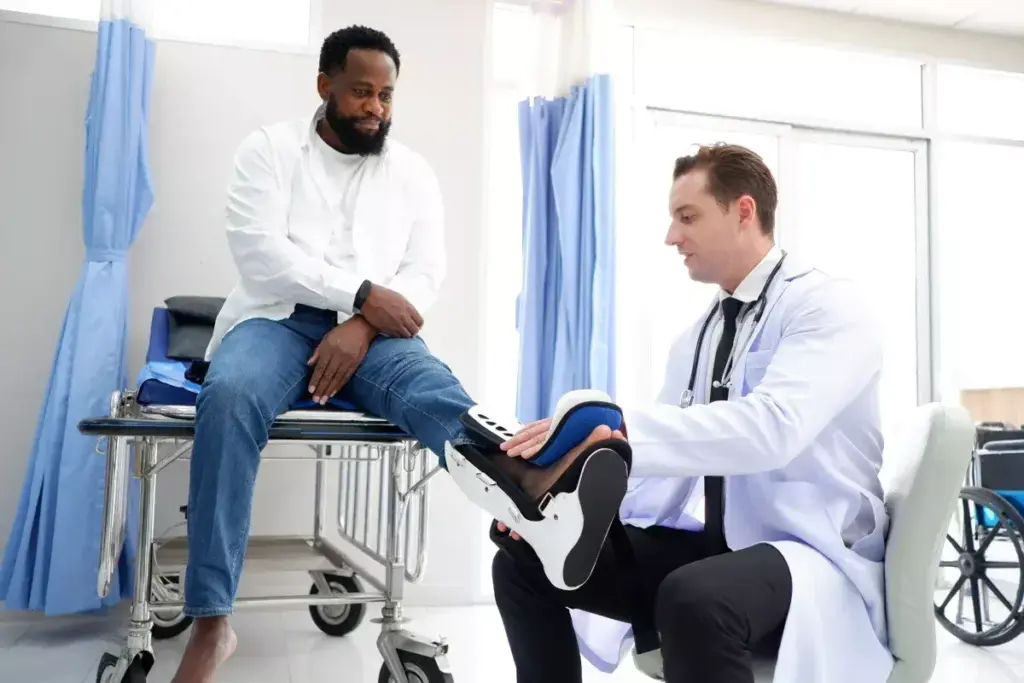What are Health Screenings?
Health Screenings for Men are preventive tests and medical exams designed to detect potential health conditions earlyoften before symptoms appear. These screenings help men maintain long-term wellness and reduce the risk of severe illness through early intervention and treatment.
The Importance of Early Detection for Men
Many men delay routine checkups, which increases the risk of having undiagnosed health conditions. However, early detection through regular Essential Health Screenings for Men boosts the chances of successful treatment and helps prevent complications. Consistent checkups are essential for tracking important health markers and supporting the adoption of healthier lifestyle habits.
Benefits of Regular Men’s Health Checkups
• Detecting silent health issues (such as hypertension or high cholesterol)
• Preventing the progression of diseases
• Supporting a longer, healthier life
• Providing peace of mind and boosting mental well-being- Preventing disease progression
- Promoting longevity and quality of life
- Offering peace of mind and improved mental health
Recommended Health Screenings for Men Ages 18-39
Baseline Physical Exam and Vitals Check
Men should begin comprehensive health checkups in early adulthood. Annual physical exams track key metrics such as weight, height, BMI, and vital signs like blood pressure and heart rate.
Blood Pressure Monitoring
Men should begin blood pressure screening by age 18, especially if they have a family history of hypertension or risk factors such as obesity or smoking. High blood pressure is a silent risk to heart and kidney health.
Cholesterol Screening Guidelines
Men should have their cholesterol checked every 46 years starting at age 20. Those with a family history of heart disease may require more frequent testing.
Testicular Exam Recommendations
Regular self-exams and doctor examinations help detect testicular cancer early, which is most common in younger men.
Infectious Disease Screening (STD/STI)
Sexually active men should be screened for sexually transmitted infectionsincluding HIV, syphilis, gonorrhea, and chlamydiabased on their individual risk factors.
Immunization Updates
Make sure your vaccinations for flu, tetanus, HPV, hepatitis, and COVID-19 are regularly reviewed and kept up to date.
Key Health Screenings for Men Ages 40-64
Cardiovascular Health
Regular monitoring of blood pressure, cholesterol, and lifestyle habits is essential. These screenings play a key role in preventing heart attacks and strokes.
Diabetes Screening (Type 2)
Men should begin diabetes screening at age 45, or earlier if they have risk factors. Recommended tests include fasting blood glucose and A1C.
Colorectal Cancer Screening Options
Men should begin colorectal cancer screening at age 45. Screening options include:
- Colonoscopy (every 10 years)
- Stool-based tests (annually)
- Virtual colonoscopy (every 5 years)
Prostate Cancer Screening (PSA Test and DRE)
Prostate cancer screening for men typically begins at age 50, or earlier for those at higher risk. Screening includes a PSA blood test and a digital rectal exam (DRE).
Lung Cancer Screening for High-Risk Individuals
Annual low-dose CT scans are recommended for men aged 5080 who have a history of heavy smoking.
Vision and Eye Exams
Eye health exams help detect glaucoma, cataracts, and age-related macular degeneration early.
Important Screenings for Men Over 65
Continued Cardiovascular and Diabetes Monitoring
Annual screenings for heart disease and diabetes are essential and should be continued each year.
Osteoporosis Screening Considerations
While osteoporosis is more common in women, older men are also at risk. Bone density testing may be recommended for men in this age group.
Enhanced Cancer Screening Protocols
Maintain age-appropriate screenings for prostate, colorectal, skin, and lung cancers.
Cognitive Function Assessment
Hearing Tests
Routine hearing assessments support good quality of life and help preserve mental sharpness.
Specific Screening Tests Explained
Blood Pressure Measurement
Memory tests can detect early signs of dementia or Alzheimer’s disease.
A quick, noninvasive test that detects hypertensiona leading risk factor for cardiovascular disease.
Understanding Your Cholesterol Panel
A cholesterol panel measures LDL (bad cholesterol), HDL (good cholesterol), and triglycerides. Imbalances in these can raise your risk of heart disease.
Diabetes Tests: A1C, Fasting Glucose
The A1C test shows your average blood sugar over the past 3 months, while fasting glucose helps identify early prediabetes.
Colorectal Cancer: Colonoscopy and Other Methods
Colonoscopy is the gold standard for colorectal cancer screening. Noninvasive alternatives include stool DNA tests and FIT tests.
Prostate Cancer: PSA Levels and Digital Rectal Exam
Elevated PSA levels can signal cancer or other benign conditions. A digital rectal exam (DRE) helps identify prostate abnormalities.
Skin Exams for Cancer Prevention
Annual skin exams help spot unusual moles or lesions earlyespecially important for men with high sun exposure.
Eye Health Checks
Routine vision exams help detect refractive errors, glaucoma, and other eye health issues early.
Why Choose Turkey for Your Essential Health Screenings for Men?
High Standards of Medical Care in Turkey
Turkey features advanced medical infrastructure and internationally accredited hospitals such as Liv Hospital.
Cost-Effective Health Services
Screenings and treatments in Turkey are more affordable than in Western countrieswithout compromising on quality.
Access to Advanced Medical Technology
Turkish hospitals are equipped with the latest diagnostic tools, from advanced MRI to comprehensive genetic testing.
Liv Hospital: Expertise in Essential Health Screenings for Men
Personalized Essential Health Screenings for Men Packages
Liv Hospital provides annual men’s exams personalized to your age, lifestyle, and risk factors.
State-of-the-Art Diagnostic Technology at Liv Hospital
We use high-resolution imaging, digital records, and real-time data analysis to deliver advanced, efficient care.
Multilingual Support and Patient Services
Our team supports international patients with travel arrangements, translation services, and post-visit care.
Experienced Specialists in Essential Health Screenings for Men
Our Urology, Cardiology, and Internal Medicine departments collaborate to provide coordinated, integrated care.
Preparing for Your Essential Health Screenings for Men Visit
What Information to Bring
• List of medications
• Family medical history
• Previous test results- Family medical history
- Previous test results
Questions to Ask Your Doctor
- Which screenings are essential for me?
- How frequently should I be tested?
- What lifestyle changes can improve my results?
Lifestyle Factors to Discuss
- Smoking or alcohol use
- Sleep quality
- Physical activity and diet
For more information about our academic and training initiatives, visit Liv Hospital Academy
Frequently Asked Questions
What are Essential Health Screenings for Men?
They are preventive tests and exams that detect diseases like heart conditions, diabetes, and cancer early, improving treatment success and long-term wellness.
How often should men have a health checkup?
A general physical exam is recommended once a year, though specific screenings such as cholesterol or blood pressure may be needed more frequently based on risk factors.
At what age should men start prostate screening?
Most men should begin prostate cancer screening at age 50. Those with a family history or other risk factors may start earlier at 40 to 45.
Which screenings are vital for men in their 40s and 50s?
Key screenings include cholesterol, blood pressure, diabetes, colorectal cancer, prostate health, and cardiovascular evaluation.
Is blood pressure screening necessary for young men?
Yes. It should begin at age 18 since hypertension can develop silently and lead to serious heart or kidney issues if untreated.
Why are regular screenings important even without symptoms?
Many diseases develop silently. Early detection prevents progression and enables timely treatment for better outcomes.
Why choose Liv Hospital for health screenings?
Liv Hospital provides advanced technology, multidisciplinary medical teams, and personalized screening packages tailored to each patient’s age, lifestyle, and risk factors.










